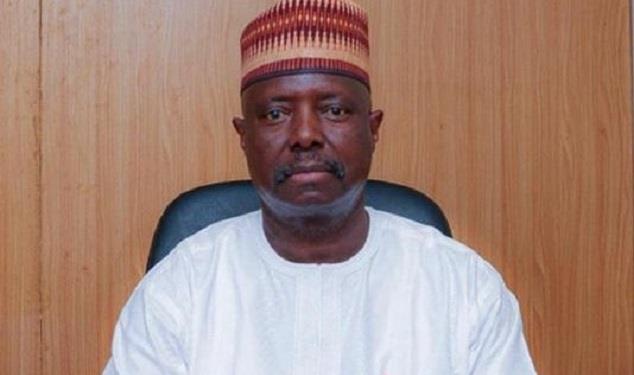The National Oil Spill Detection and Response Agency (NOSDRA) has reaffirmed its commitment to partner with civil society organisations (CSOs) to improve environmental response efforts in the Niger Delta.

Mr Bello Austine, Zonal Head, NOSDRA, Zonal Office, Port Harcourt, made the remark during an advocacy visit by the CSOs to his office on Wednesday, April 30, 2025.
Austine emphasised the importance of effective communication and information sharing with stakeholders, saying that it would enhance response to environmental incidents.
He said that the agency would continue to explore ways to inform and engaged relevant stakeholders to sustain the country’s environment.
According to him, the agency had put a lot in place to sustain the country’s environment, as it has to do with the monitoring and protection of the environment and livelihoods.
He said that the agency would study the accuracy and effectiveness of a new environmental monitoring device, donated to it by the Media Awareness and Justice Initiative (MAJI), to enhance oil spill management and response efforts.
Austine assured that the agency would partner with CSOs for a better understanding of the monitoring device to ascertain its functions.
“We will invite your organisations to explain more about this device and see if it can be incorporated as one of the effective environmental monitoring tools,’’ he said.
He said that the finding would be communicated to NOSDRA head office for approval if needful.
Austine, however, hoped that partnership with CSOs would consolidate the gains in sustainable environmental management in Nigeria’s petroleum industry, as it was in the agency’s collaboration with Stakeholder Democracy Network (SDN).
Earlier, Mr Kentebe Ebiaridor, the Programme Manager, Environmental Rights Action/Friends of the Earth Nigeria (ERA), said that the visit to NOSDRA was to reaffirm their commitment to working together and addressing environmental challenges.
Ebiaridor also the Coordinator, Oil Watch International, highlighted the importance of quick response to environmental issues and in strengthening NOSDRA’s capacity to deal with oil spills.
He advocated for a review of the NOSDRA Act to address grey areas that could grant the agency more independence.
He suggested that NOSDRA should have logistical equipment, including speedboats and helicopters, to respond to oil spills in the Niger Delta region without relying on oil companies.
Ebiaridor noted that the NOSDRA’s reliance on oil companies for logistics undermined community trust in the agency’s ability to respond to oil spills impartially.
He commended NOSDRA for its past collaboration with the Environmental Rights Action on joint investigative visits and community sensitisation of oil spills that yielded positive results.
Similarly, Mr Onyekachi Okoro, Executive Director, Media Awareness and Justice Initiative, also called for a collaborative effort with the NOSDRA to enhance environmental monitoring and data collection.
Okoro said that the organisation had developed a device that monitors air quality, temperature, and pressure levels, which could be deployed in various locations to collect data.
Speaking also, Dr Emem Okon, the Executive Director, Kebetkache, emphasised the need for environmental action to protect women in the Niger Delta region.
Okon, represented by Idongesit Umoh-Smart, Programme Officer, Kebetkache, noted that the impact of environmental pollution research carried out on women in the region revealed alarming statistics of the oil activities’ impact on their health.
She said that over 80 per cent of women medically tested in a part of the region had Benzene in their blood system.
She said that some other women were experiencing infertility, early menopause, and other health problems due to environmental pollution.
Okon called for collaborative efforts to address environmental pollution and protection of women health in the Niger Delta region.
She also called for government support in providing medical attention and compensation for women affected by environmental pollution.
The CSOs in attendance include a United States-based NGO, Culturally Rooted Reformations; Lekeh Development Foundation; Rights Advocacy and Development Centre; and Kallop Humanitarian and Environmental Centre, among others
